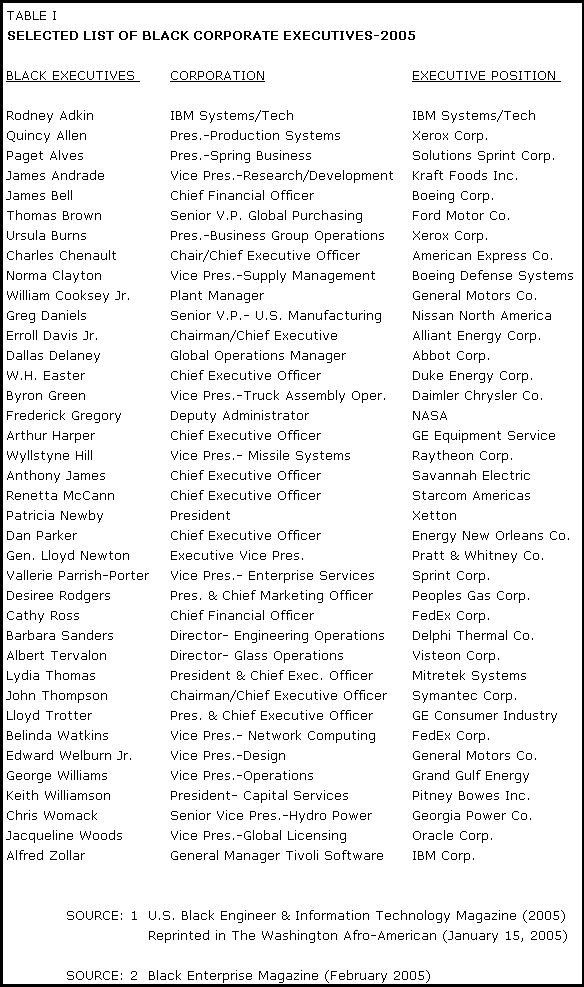In light of the multi-layered crises facing African-American families, children, and youth, we must confront candidly the issue of the obligation-and-responsibility of today’s middle-class and professional sector — the Black elite sector — to assist in fashioning solutions to these crises. There is available among today’s Black elite sector a much greater capacity to outreach-to-Black-lower-class-crises than has ever been available to previous generations of African-Americans who fell into the Black elite sector.
We can deduce the existence of today’s new Black elite capabilities from data on the upper-stratum occupational growth among African-Americans during the post-Civil Rights Movement era. A survey of U.S. occupations by the Department of Commerce in 2000 reported that within the ranks of white-collar jobs, African-Americans were increasingly penetrating the upper-tier of white-collar jobs. In the Department of Commerce report, the upper-tier of white-collar jobs were defined as “management, professional, and related occupations.” Accordingly, by 2000 some 25% of employed African-Americans held upper-tier white-collar jobs, which amounted to nearly 4 million African-American individuals. This compared with 18% of Latino-Americans employed in “management, professional, and related occupations.” (See U.S. Census Bureau, Occupations—2000 (Washington, D.C.: Department of Commerce, August 2003) p.6)
Furthermore, the categories of African-Americans throughout white-collar jobs were reported in a U.S. Census Bureau survey in 2002 as follows - out of 14,725,000 employed Black Americans:
-
Some 1,430,000 (10%) are employed in executive, administrator, managerial jobs.”
-
Some 1,853,000 Black Americans (13% of employed) are in “professional jobs”.
-
Some 439,000 Black Americans (3% of employed) are in “technical and related jobs”.
-
Some 1,359,000 Black Americans (9.2% of employed) are in "sales jobs".
-
Some 2,369,000 Black Americans (16% of employed) are in “administrative support and clerical jobs.”




